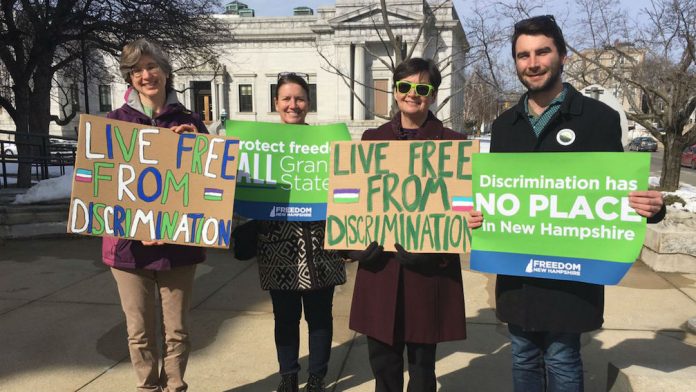
A new transgender nondiscrimination bill has been scheduled for a hearing on January 31 by the New Hampshire House Judiciary Committee. Similar legislation was defeated in 2007 and tabled in 2017.
“The bill would bar discrimination based on gender identity in housing, employment and public accommodations at places such as restaurants or movie theaters,” stated a January 17 Boston WHDH News 7 report, which noted that supporters of the 2018 bill include the Granite State’s Business and Industry Association, the New Hampshire Women’s Foundation, the New Hampshire Coalition Against Domestic and Sexual Violence and the New Hampshire Association of Chiefs of Police.
In a January 18 SeacoastOnline editorial, Dr. Joelle Ruby Ryan, a senior lecturer in women’s studies at University of New Hampshire, wrote:
As a transgender person and lifelong NH resident myself, I have faced discrimination in a variety of arenas. This discrimination is unfair and goes against the values of our state and our nation.
Transgender people deserve the same freedoms and opportunities as their non-transgender peers. We face massive levels of unemployment, housing discrimination and homelessness, hate crimes and violence, discrimination in medical care and ejection from public places. I am a college professor and I often ask my students whether there is legal protection for transgender people in our state. Almost all of the hands go up in the affirmative. It’s surprising to know that NH is currently the only state in New England that does not protect people on the basis of gender identity. It is high time that NH follows the example of our neighbors throughout New England and protects its citizens and visitors from discrimination. In addition, they can follow the other 18 states and 200 cities and towns throughout the country that have such protections, protections which were first offered in Minnesota back in the 1970s. …
I urge readers to do all they can to help get this legislation passed. It is time that all Granite Staters, including transgender people, are offered protection in housing, public places and employment and are able to have the same freedom and opportunities as everyone else.








